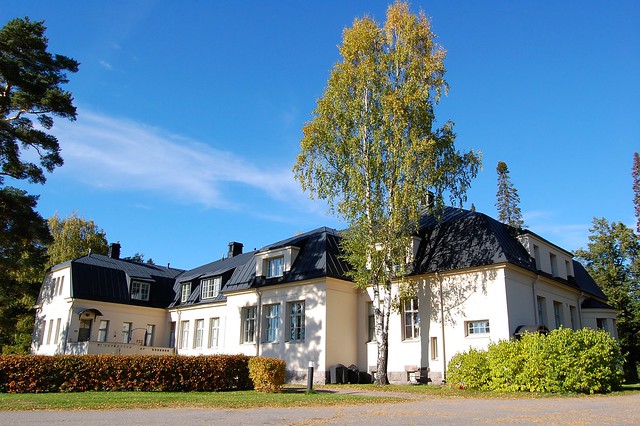A Finnish word I learnt recently is asua [ˈɑsuɑ], which means to live, reside or dwell. I could say, for example, Asun Bangorissa Walesissa (I live in Bangor in Wales).
It comes from the Proto-Finnic *asudak, from the Proto-Uralic *ëśew- (to camp, remain), from *ëśe- (to exist, be located) [source].
Related words in Finnish include:
- asukas = resident, inhabitant
- asumaton = uninhabited
- asumus = dwelling
- asunto = home, residence, housing unit, flat, apartment
- asuttaa = to inhabit, people, populate, settle, colonize, (re)locate
So you could say, Asukas asuu asumattomassa asunnossa (The resident lives in an uninhabited flat/apartment), but that wouldn’t make much sense.
I actually learnt the word asunto first, and when I came across asua, I guessed it meant to live or something simliar. Although Finnish vocabulary is mostly unlike any other language I know, you can find plenty of internal connections like this.
Incidentally, house in Finnish is talo [ˈtɑlo], which comes from the Proto-Finnic *taloi (farm, house). It is cognate with the Estonian talu (farm) and the Northern Sami dállu (house, farm) [source].
The word asunto [aˈsunto] also exists in Spanish and Galician. In Spanish it means matter, issue, (romantic) affair, or business, [source] while in Galician it means matter, issue or business [source].
It comes from the Latin assūmptus (received, adopted, accepted), from assūmō (I take up, receive, adopt or accept), from ad- (to) and sūmō (I take, catch, assume) [source].
Words from the same roots include assume in English, assumer (to embrace, accept, own) in French, assumere (to take on, employ, consume) in Italian, asumir (to assume, take on) in Spanish [source].

“Assumir” is Portuguese, in Spanish it’s “asumir”. Double s is no longer used in Spanish.